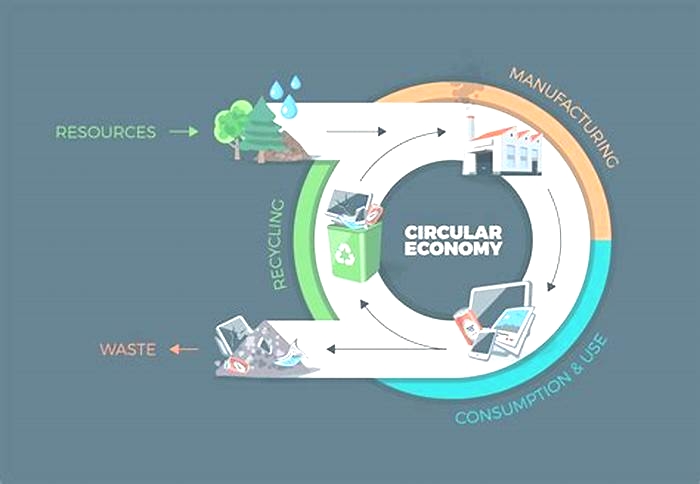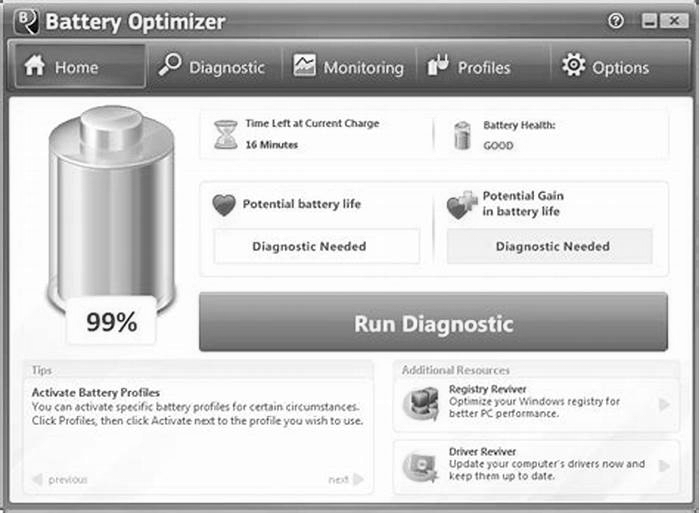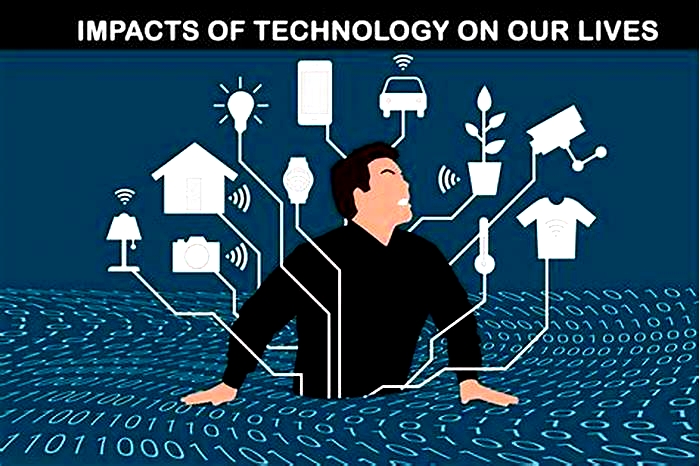Repairing vs Replacing Extending the Life of Your Tech Gear and Reducing Environmental Impact

The Pros and Cons of Repairing vs. Replacing Appliances
When faced with a malfunctioning appliance, you often have to decide whether to repair or replace it. Both options have their pros and cons, and the best choice depends on various factors such as the extent of the damage, the age of the appliance, repair costs, and personal preferences. Here are some pros and cons of repairing versus replacing appliances to help you make an informed decision:Repairing Appliances:Pros:
- Cost-effective: Repairing an appliance is usually cheaper than replacing it, especially for minor issues or parts replacement.
- Familiarity: If youre already accustomed to using a particular appliance and it meets your needs, repairing it allows you to maintain familiarity and consistency.
- Environmental impact: Repairing appliances promotes sustainability by extending their lifespan, reducing waste, and minimizing the resources required to manufacture new appliances.
- Sentimental value: Some appliances hold sentimental value, such as heirlooms or gifts. Repairing them preserves their sentimental significance.
Cons:
- Frequent breakdowns: Older appliances that require frequent repairs may indicate an underlying problem or age-related deterioration. Continual repairs can become inconvenient and costly in the long run.
- Limited warranty: Repaired appliances may have limited or no warranty coverage, leaving you responsible for future breakdowns.
- Outdated features: Repairing an older appliance may resolve immediate issues but wont update outdated features or energy efficiency, which could lead to higher utility costs over time.
- Time and effort: Scheduling repairs, waiting for parts, and coordinating with technicians can be time-consuming and inconvenient.
Replacing Appliances:Pros:
- Improved energy efficiency: Newer appliances are often more energy-efficient, which can result in lower utility bills over time.
- Enhanced features: Upgraded appliances often come with advanced features, such as smart capabilities or improved performance, providing convenience and added functionality.
- Manufacturer warranty: Purchasing a new appliance typically includes a warranty, providing peace of mind and potential cost savings if issues arise.
- Aesthetics and customization: Buying a new appliance allows you to select a model that matches your preferences and integrates seamlessly with your homes decor.
Cons:
- Higher upfront cost: Purchasing a new appliance is generally more expensive than repairing the existing one, particularly for high-end or specialized models.
- Environmental impact: Manufacturing new appliances consumes resources and contributes to environmental pollution.
- Learning curve: Adjusting to a new appliance may require time and effort to understand its features and functionality.
- Disposal of the old appliance: Properly disposing of the old appliance can be a challenge, particularly when it contains hazardous materials.
Ultimately, the decision to repair or replace an appliance depends on a range of factors, including the appliances age, condition, repair costs, and your personal circumstances. Its often helpful to consider the cost-effectiveness, long-term savings, environmental impact, and the overall value and satisfaction you derive from the appliance when making your choice.
Cost-effective
When it comes to cost-effectiveness, the choice between repairing and replacing an appliance depends on several factors:Repairing:
- Lower upfront cost: Repairing an appliance is generally less expensive than buying a new one, especially for minor issues or component replacement.
- Extending lifespan: By addressing the specific problem through repair, you can potentially extend the life of the appliance, maximizing your investment.
- Avoiding depreciation: Appliances tend to lose value over time. By repairing instead of replacing, you avoid the initial depreciation associated with a new purchase.
Replacing:
- Long-term savings: Newer appliances often come with improved energy efficiency, which can result in lower utility bills over time. These energy savings may help offset the higher upfront cost of a new appliance.
- Reduced repair costs: Older appliances may require frequent repairs, and the cumulative costs can add up. By replacing with a new appliance, you can avoid the ongoing repair expenses.
- Warranty coverage: Purchasing a new appliance usually includes a warranty, providing protection against unexpected malfunctions and potential cost savings if repairs are needed during the warranty period.
Its important to consider the specific circumstances of your appliance when evaluating cost-effectiveness. If the repair cost is significantly lower than the price of a new appliance, and the repair can extend the appliances life for a reasonable period, repairing is likely the more cost-effective choice. However, if the repair cost is high, the appliance is old and likely to require additional repairs in the near future, or the energy savings of a new appliance would offset the upfront cost over time, replacing may be the more cost-effective option.Remember to factor in other considerations such as the age of the appliance, its overall condition, potential long-term savings, and any additional features or benefits that a new appliance may offer.
Familiarity
Familiarity is an important factor to consider when deciding whether to repair or replace an appliance. Heres how familiarity plays into the decision-making process:Repairing:
- Maintaining consistency: If youre already familiar with the appliance and it meets your needs, repairing it allows you to continue using a device you are comfortable with. You dont have to adapt to a new interface, controls, or features.
- Preserving your routine: Repairing an appliance keeps your daily routine intact, as you can continue using the same familiar processes and settings.
- Avoiding the learning curve: Getting used to a new appliance can take time and effort. Repairing allows you to bypass the learning curve associated with a replacement, saving you the hassle of adjusting to a different device.
Replacing:
- Upgraded features and technology: By replacing an old appliance, you have the opportunity to upgrade to a newer model with advanced features and technology. These enhancements can improve functionality, convenience, and overall performance.
- Adaptation to modern interfaces: New appliances often incorporate user-friendly interfaces and controls that may be more intuitive or easier to navigate. This can enhance your user experience and make operating the appliance more convenient.
- Improved efficiency: Newer appliances frequently come with improved energy efficiency, potentially resulting in lower utility bills. By replacing your appliance, you can take advantage of these energy-saving benefits.
When deciding between repairing and replacing, consider the value of familiarity and whether the benefits of a new appliance, such as upgraded features and improved efficiency, outweigh the comfort and familiarity of sticking with the existing device. Assess your comfort level with learning new interfaces, adapting to changes, and the potential benefits of an upgraded appliance that may enhance your overall experience.
Environmental impact
The environmental impact is an important consideration when deciding between repairing and replacing appliances. Heres how each option can affect the environment:Repairing:
- Extended lifespan: Repairing an appliance allows you to extend its useful life, reducing the need for new manufacturing and the associated environmental impact. By keeping appliances out of landfills for a longer period, you contribute to waste reduction and conservation of resources.
- Reduced waste: Repairing an appliance prevents it from becoming another item in the growing waste stream. Appliances often contain various components and materials that can be harmful to the environment if not properly disposed of.
- Energy and resource savings: Repairing an appliance consumes fewer resources compared to manufacturing a new one. By avoiding the production, transportation, and packaging of a new appliance, you help conserve energy and reduce the extraction of raw materials.
Replacing:
- Energy efficiency: Newer appliances often come with improved energy efficiency standards, meaning they require less energy to operate. By replacing an old, inefficient appliance, you can potentially reduce your energy consumption and environmental footprint.
- Technological advancements: New appliances often incorporate advanced technologies that optimize performance, reduce resource usage, and minimize environmental impact. For example, modern appliances may have features like smart energy management, water-saving mechanisms, or eco-friendly materials.
- Recycling programs: When replacing an appliance, many manufacturers and retailers offer recycling programs to properly dispose of your old appliance. This ensures that hazardous materials are handled responsibly and valuable components are recycled rather than ending up in landfills.
Its important to note that both repairing and replacing can have environmental benefits. Repairing reduces waste and extends the life of existing appliances, while replacing with energy-efficient models helps conserve resources and reduce energy consumption. When making an environmentally conscious choice, consider factors such as the age and efficiency of the appliance, the extent of the damage, and the availability of repair services and recycling programs in your area.Additionally, proper maintenance and responsible disposal of appliances, whether through repair or replacement, can further minimize their environmental impact.
Sentimental value
Sentimental value is a personal and subjective factor that can influence the decision between repairing and replacing appliances. Heres how sentimental value comes into play:Repairing:
- Preservation of memories: Some appliances hold sentimental value because they have been in the family for a long time or are associated with special memories. Repairing these appliances allows you to maintain the connection to those memories and the sentimental attachment.
- Retaining the original item: Repairing an appliance keeps the original item intact, preserving its unique character and history. This can be particularly important for antique or vintage appliances that may have sentimental or nostalgic value.
- Emotional significance: Repairing an appliance that has sentimental value can evoke positive emotions and a sense of continuity. The repaired appliance can continue to be a part of your daily life and remind you of meaningful moments.
Replacing:
- Upgrading while preserving sentiment: In some cases, sentimental value can be maintained even when replacing an appliance. If you choose to replace, you can search for a similar or updated model that resembles the original appliance, ensuring the sentimental connection remains intact.
- Incorporating sentimental features: When replacing, you have the opportunity to choose a new appliance that incorporates sentimental features, such as design elements, colors, or functionalities that evoke the same feelings associated with the original appliance.
Its important to consider the sentimental value in the context of other practical factors, such as the appliances age, condition, repair costs, and overall functionality. If sentimental value is a significant consideration for you, repairing the appliance may be the preferred choice as it allows you to preserve the original item and the memories associated with it. However, if sentimental value can be maintained or recreated with a new appliance, replacing might also be a viable option.Ultimately, the decision should strike a balance between sentimental value and practical considerations, ensuring that the repaired or replaced appliance continues to bring you joy and serves its intended purpose.
Frequent breakdowns
Frequent breakdowns of an appliance can be frustrating and inconvenient. Here are some considerations related to frequent breakdowns when deciding whether to repair or replace:Repairing:
- Identifying underlying issues: Frequent breakdowns may indicate an underlying problem that can be addressed through repair. By identifying and fixing the root cause, you can potentially resolve the recurring issues and extend the appliances lifespan.
- Cost-effectiveness: If the repair cost is reasonable and significantly lower than the price of a new appliance, repairing might be a cost-effective option, especially if the breakdowns are isolated incidents rather than a pattern of ongoing problems.
- Professional advice: Consulting with a qualified technician can help determine if the frequent breakdowns are due to repairable issues or if they signal a more significant problem. Their expertise can guide you in making an informed decision.
Replacing:
- Age and wear: If an appliance is old and experiencing frequent breakdowns, it may indicate that the unit is reaching the end of its useful life. Older appliances are more likely to develop multiple issues, and repairing them can become a recurring and costly endeavor.
- Reliability and inconvenience: Frequent breakdowns can disrupt your daily routine and cause inconvenience. If the breakdowns are causing significant disruptions and affecting your quality of life, replacing the appliance with a more reliable model might be a better solution.
- Cost of repairs: If the repair costs accumulate and exceed a significant portion of the appliances value or the cost of a new replacement, it may be more cost-effective to invest in a new appliance with better reliability and performance.
Consider the frequency, severity, and cost of repairs when evaluating the impact of frequent breakdowns. If the repairs are minor, occasional, and cost-effective, repairing might be a viable solution. However, if the breakdowns are recurrent, costly, and indicative of age-related issues, replacing the appliance might be a more practical and reliable option.Its important to weigh the potential benefits of a new appliance, such as improved reliability, energy efficiency, and warranty coverage, against the ongoing inconvenience, expenses, and uncertainty associated with frequent breakdowns.
Limited warranty
When considering whether to repair or replace an appliance, the warranty coverage is an important factor to take into account. Heres how the limited warranty of an appliance can impact your decision:Repairing:
- Warranty limitations: Repairing an appliance typically does not provide you with a new warranty. If the appliance experiences further issues after the repair, you may be responsible for the cost of subsequent repairs.
- Out-of-pocket expenses: If the appliance is no longer covered by a warranty or the warranty has expired, you will bear the full cost of repairs. This can be a significant consideration, especially if the repairs are frequent or involve expensive parts.
- Independent warranty options: In some cases, repair services may offer their own warranties on the repairs they perform. This can provide some peace of mind, but its important to understand the terms and coverage of such warranties.
Replacing:
- Manufacturers warranty: Purchasing a new appliance usually comes with a manufacturers warranty. This warranty can provide coverage for a specific period, protecting you from unexpected malfunctions and repairs during that time.
- Extended warranty options: Many retailers offer extended warranty options for new appliances, which can further extend the coverage beyond the manufacturers warranty period. These extended warranties can provide additional protection and potential cost savings in the event of future repairs.
- Peace of mind: Having warranty coverage on a new appliance can offer peace of mind, knowing that if something goes wrong within the warranty period, the manufacturer or retailer will handle the repairs or replacement.
When considering the limited warranty of an appliance, evaluate the remaining duration of the warranty, the likelihood of future repairs, and the potential cost of those repairs. If the appliance is still covered by a warranty and the repairs needed are covered under the warranty terms, repairing the appliance can be a cost-effective option.However, if the warranty has expired or the cost of repairs is significant compared to the value of the appliance, replacing it with a new appliance that comes with a warranty may provide better long-term protection and potential savings.Remember to review the warranty terms, understand the coverage provided, and consider any additional warranty options available for both repairing and replacing scenarios to make an informed decision.
Outdated features
When deciding whether to repair or replace an appliance, outdated features are an important consideration. Heres how outdated features can impact your decision:Repairing:
- Maintaining current features: Repairing an appliance allows you to retain the existing features that you are accustomed to using. If those features meet your needs and you are satisfied with them, repairing can help you continue using the appliance without any changes.
- Cost-effectiveness: Repairing an appliance with outdated features may be more cost-effective than replacing it with a newer model that has upgraded features. If the repairs are reasonable and can restore the appliances functionality, repairing may be a suitable option.
Replacing:
- Upgraded functionality: If the appliances features are outdated and no longer meet your needs, replacing it with a new model can provide access to modern and upgraded functionalities. New appliances often incorporate advanced technologies, improved energy efficiency, and additional features that can enhance your user experience.
- Energy efficiency: Outdated appliances may consume more energy than newer, energy-efficient models. By replacing them, you can potentially reduce your energy consumption and lower utility bills over time.
- Improved convenience: Newer appliances may offer enhanced convenience features, such as touch controls, smart connectivity, or automation capabilities. These features can simplify your tasks, streamline operations, and provide added convenience in your daily life.
Its important to assess the significance of outdated features in relation to your needs and preferences. Consider the importance of having the latest technology, energy efficiency, and convenience features in the appliances intended usage. If the outdated features significantly impact your experience or hinder the appliances functionality, replacing it with a new model that meets your current requirements may be the more appropriate choice.However, if the outdated features are not critical to your usage and the repairs can restore the appliances performance at a reasonable cost, repairing can help you continue using the appliance without the need for new features or functionalities.Ultimately, the decision should be based on a balance between the importance of updated features and the overall functionality and value you derive from the appliance.
Time and effort
Time and effort are important factors to consider when deciding between repairing and replacing appliances. Heres how they can impact your decision-making process:Repairing:
- Time for repairs: Repairing an appliance typically requires time for scheduling appointments with technicians and waiting for the repair to be completed. The duration of the repair process can vary depending on the availability of technicians and the complexity of the repair.
- Convenience and inconvenience: Repairing an appliance may cause temporary inconvenience, especially if you rely heavily on the appliance in your daily routine. You may need to adjust your schedule or find temporary alternatives while the appliance is being repaired.
- Potential delays: Depending on the availability of replacement parts, there may be delays in the repair process. If the necessary parts are not readily available, it could prolong the time it takes to complete the repair.
Replacing:
- Research and shopping: Finding a suitable replacement appliance requires time and effort to research different models, compare features, read reviews, and visit stores or browse online platforms. This process can take a significant amount of time to ensure you make an informed decision.
- Delivery and installation: Once youve chosen a replacement appliance, youll need to coordinate delivery and installation. This can involve scheduling appointments, coordinating with delivery services, and potentially rearranging your schedule to accommodate the installation process.
- Learning curve: Adjusting to a new appliance may require time and effort to understand its features, controls, and functionalities. You may need to refer to the user manual or spend time familiarizing yourself with the new appliances operation.
Consider your personal circumstances and availability when assessing the impact of time and effort. If you have a busy schedule or rely heavily on the appliance, the time and inconvenience associated with repairs might be less desirable. In such cases, replacing the appliance could offer a quicker solution and minimize disruption to your routine.However, if you have the flexibility to accommodate repair appointments and can manage without the appliance for a short period, repairing might be a viable option. Repairing can save time compared to the research and shopping process involved in finding and purchasing a new appliance.Ultimately, the decision should balance the urgency of the situation, the availability of repair services, your time constraints, and the convenience or inconvenience associated with both repairing and replacing the appliance.
Improved energy efficiency
Improved energy efficiency is a significant consideration when deciding between repairing and replacing appliances. Heres how energy efficiency can impact your decision-making process:Repairing:
- Potential energy savings: If your existing appliance is not energy-efficient, repairing it may not directly improve its energy efficiency. However, addressing specific issues through repairs, such as fixing faulty components or improving insulation, can lead to some energy savings.
- Cost-effectiveness: Repairing an appliance is generally more cost-effective than replacing it, especially if the repairs are minor or the cost of a new energy-efficient appliance is considerably higher.
- Environmental impact: By repairing and continuing to use your existing appliance, you reduce the demand for new appliances, which helps minimize the environmental impact associated with manufacturing, transporting, and disposing of new appliances.
Replacing:
- Energy-efficient models: New appliances are often designed with improved energy efficiency standards. Replacing an old, inefficient appliance with a new energy-efficient model can result in significant energy savings over time.
- Long-term cost savings: Energy-efficient appliances consume less energy, which translates into lower utility bills over the lifespan of the appliance. Although the upfront cost of a new appliance may be higher, the long-term cost savings can offset this initial investment.
- Environmental benefits: Energy-efficient appliances help reduce greenhouse gas emissions and lower overall energy consumption, contributing to a more sustainable and environmentally friendly approach to household energy usage.
Consider the age and energy efficiency of your existing appliance when evaluating the impact of energy efficiency. If the appliance is relatively new and already energy-efficient, repairing it may be a viable option. However, if the appliance is old and inefficient, replacing it with a new, energy-efficient model can lead to substantial energy savings and lower utility costs over time.Additionally, factor in the potential financial savings from reduced energy consumption and the environmental benefits of using energy-efficient appliances. These long-term benefits can help justify the higher upfront cost of a new appliance.Its worth noting that energy efficiency is not the sole determinant in the decision-making process. You should also consider other factors, such as the extent of repairs needed, the overall condition of the appliance, and your budgetary constraints, to make a well-rounded decision that aligns with your specific needs and priorities.
Enhanced features
Enhanced features play a significant role in the decision between repairing and replacing appliances. Heres how enhanced features can impact your decision-making process:Repairing:
- Retaining existing features: Repairing an appliance allows you to retain the features and functionalities that you are already familiar with and that meet your needs. If the existing features are sufficient and satisfactory, repairing can help you continue using the appliance without any changes.
- Cost-effectiveness: Repairing an appliance with existing features may be more cost-effective compared to purchasing a new appliance with upgraded features. If the repairs are reasonably priced and can restore the appliances functionality, repairing may be the preferred option.
Replacing:
- Upgraded functionality: Newer appliances often come with enhanced features and functionalities that can improve your overall user experience. These may include advanced control systems, automation capabilities, specialized modes, or additional convenience features that simplify tasks or provide added functionality.
- Improved performance: Upgraded appliances often offer improved performance, such as faster operation, better temperature control, increased capacity, or quieter operation. These enhancements can enhance your efficiency and satisfaction with the appliances performance.
- Technological advancements: New appliances incorporate the latest technologies, which may include smart connectivity, voice control, energy-saving modes, or advanced sensors. These technological advancements can offer added convenience, energy efficiency, and integration with other smart devices in your home.
When considering enhanced features, evaluate their importance to your specific needs and preferences. Assess whether the upgraded functionalities will significantly enhance your appliances performance, efficiency, or convenience.If the existing features meet your requirements and the repairs can restore the appliances functionality, repairing might be a suitable choice. However, if the enhanced features are essential to improving your experience, replacing the appliance with a new model that offers those features could be the better option.Keep in mind that enhanced features often come with a higher price tag, so its important to consider the cost of a new appliance with upgraded features compared to the repair costs and the overall value youll gain from those features.Ultimately, the decision should strike a balance between the importance of enhanced features and the practical considerations of repair costs, budget constraints, and the overall value you derive from the appliance.
Manufacturer warranty
The manufacturer warranty is an important factor to consider when deciding between repairing and replacing appliances. Heres how the manufacturer warranty can impact your decision-making process:Repairing:
- Expired warranty: If your appliance is no longer covered by the manufacturer warranty, repairing it will not provide any additional warranty coverage. You will be responsible for any future repairs or related costs once the warranty has expired.
- Out-of-pocket expenses: Repairing an appliance outside of the warranty period means you will bear the full cost of repairs. This can be a significant consideration, especially if the repairs are frequent, involve expensive parts, or if the cost of repairs approaches or exceeds the value of the appliance.
Replacing:
- Manufacturer warranty coverage: When you purchase a new appliance, it typically comes with a manufacturer warranty. This warranty provides protection against defects or malfunctions within a specified period. If the appliance experiences any issues covered by the warranty, the manufacturer will typically cover the cost of repairs or replacement.
- Extended warranty options: In addition to the manufacturer warranty, some retailers or manufacturers offer extended warranty options for an additional cost. These extended warranties provide coverage beyond the standard warranty period, offering added protection and potential cost savings if repairs are needed in the future.
- Peace of mind: Having warranty coverage on a new appliance can provide peace of mind. If the appliance experiences any issues covered under the warranty, you can rely on the manufacturer to handle the repairs or replacement, minimizing your out-of-pocket expenses.
Considering the manufacturer warranty, evaluate the remaining duration of the warranty and the likelihood of future repairs. If the appliance is still covered by the manufacturer warranty and the repairs needed are covered under the warranty terms, repairing the appliance may be a cost-effective option.However, if the warranty has expired or the cost of repairs is significant compared to the value of the appliance, replacing it with a new appliance that comes with a warranty may provide better long-term protection and potential savings.Remember to review the warranty terms, understand the coverage provided, and consider any additional warranty options available for both repairing and replacing scenarios to make an informed decision.
Aesthetics and customization
Aesthetics and customization are important factors to consider when deciding whether to repair or replace an appliance. Heres how they can impact your decision-making process:Repairing:
- Retaining current aesthetics: Repairing an appliance allows you to maintain the current aesthetics and appearance of the appliance. This can be important if you have a specific design theme in your home or if the appliance matches other existing appliances.
- Cost-effectiveness: Repairing an appliance is generally more cost-effective than replacing it, especially if the repairs can restore its functionality without affecting the aesthetics.
Replacing:
- Updated design: If the current appliance no longer aligns with your desired aesthetics or if you want to refresh the look of your space, replacing it with a new appliance gives you the opportunity to choose a model that matches your preferred design style and complements your home decor.
- Customization options: When replacing an appliance, you have the flexibility to select features, colors, finishes, and sizes that cater to your personal preferences. This customization allows you to tailor the appliance to your specific needs and aesthetic preferences.
- Integration with existing appliances: If you have other appliances that you plan to keep or replace, replacing the appliance can ensure a cohesive look and seamless integration with the rest of your kitchen or living space.
Consider the importance of aesthetics and customization in relation to the overall functionality and value you derive from the appliance. If the aesthetics of the appliance are a crucial factor and repairing can maintain the desired appearance, repairing may be the suitable choice.However, if the appliances aesthetics no longer align with your preferences, or if customization options are important to you, replacing the appliance can offer the opportunity to select a new model that enhances the overall aesthetics of your space.Keep in mind that aesthetics and customization should be balanced with other practical considerations, such as the appliances age, condition, repair costs, and the functionality and performance you desire.
Higher upfront cost
One of the key considerations when deciding between repairing and replacing appliances is the higher upfront cost associated with purchasing a new appliance. Heres how the higher upfront cost can impact your decision-making process:Repairing:
- Cost-effectiveness: Repairing an appliance is generally more cost-effective in the short term compared to purchasing a new one. If the repair costs are reasonable and significantly lower than the price of a new appliance, repairing can be a cost-effective option.
- Budget constraints: If you have limited funds or budget constraints, repairing the appliance can be a more feasible option, as it requires a lower upfront investment.
- Value assessment: Consider the remaining lifespan of the appliance after repairs. If the repair cost is relatively low and extends the appliances usability for a significant period, it may be more cost-effective to repair rather than replace.
Replacing:
- Long-term savings: While the upfront cost of a new appliance is higher, it can lead to long-term savings. New appliances often come with improved energy efficiency, which can result in lower utility bills over the lifespan of the appliance.
- Warranty coverage: Purchasing a new appliance usually includes a manufacturer warranty, which provides protection against unexpected malfunctions and potential cost savings if repairs are needed during the warranty period.
- Improved performance and features: Upgrading to a new appliance may provide enhanced performance, advanced features, and modern technologies that can improve your overall experience and convenience.
When considering the higher upfront cost, its essential to assess your financial situation, long-term savings potential, and the overall value and benefits youll gain from a new appliance. If the repair cost is significantly lower than the price of a new appliance and the repaired appliance meets your needs, repairing can be the more cost-effective option.However, if the appliance is old, energy-inefficient, or requires frequent repairs that may accumulate in cost, replacing it with a new appliance can provide long-term savings and improved performance.Remember to evaluate factors such as the remaining lifespan of the appliance, energy efficiency, ongoing maintenance costs, and the potential benefits of a new appliance when determining the overall cost-effectiveness of repairing versus replacing.
Environmental impact
The environmental impact is an important consideration when deciding between repairing and replacing appliances. Heres how each option can impact the environment:Repairing:
- Waste reduction: Repairing an appliance helps reduce waste by extending its lifespan. Instead of discarding the appliance and adding it to the growing waste stream, repairing allows you to make the most of the resources and materials already used in its production.
- Conservation of resources: Repairing an appliance reduces the need for new manufacturing and the associated consumption of resources like raw materials, energy, and water. By utilizing existing appliances for a longer period, you contribute to resource conservation.
- Lower carbon footprint: Repairing an appliance generally has a lower carbon footprint compared to purchasing a new one. Manufacturing new appliances involves greenhouse gas emissions, transportation impacts, and energy-intensive processes. By repairing, you minimize the environmental impact associated with the production and disposal of new appliances.
Replacing:
- Energy efficiency: Newer appliances often come with improved energy efficiency standards, which can result in reduced energy consumption and lower greenhouse gas emissions. Upgrading to a more energy-efficient appliance can contribute to a greener and more sustainable household.
- Environmental certifications: Some new appliances carry environmental certifications, such as ENERGY STAR, that indicate they meet strict efficiency and environmental criteria. Choosing appliances with these certifications can help reduce environmental impacts and support sustainable practices.
- Recycling programs: When replacing an appliance, many manufacturers and retailers offer recycling programs to properly dispose of the old appliance. These programs ensure that hazardous materials are handled responsibly and valuable components are recycled, reducing the environmental impact of appliance disposal.
When considering the environmental impact, evaluate the condition of the appliance, the extent of repairs needed, and the potential energy savings from upgrading to a more energy-efficient model. Repairing an appliance can be a more environmentally friendly choice if it extends its lifespan and avoids the need for new manufacturing. However, if the appliance is old, energy-inefficient, and repairs are not sufficient to improve its environmental performance, replacing it with a more efficient model can be a greener option.Remember to also consider the overall lifecycle impact, including the energy and resources saved during the use phase, the manufacturing impacts of the new appliance, and responsible disposal or recycling options for the old appliance.Ultimately, the decision should strike a balance between minimizing waste, conserving resources, reducing energy consumption, and considering the overall environmental impact of repairing versus replacing.
Learning curve
The learning curve is an important consideration when deciding between repairing and replacing appliances. Heres how the learning curve can impact your decision-making process:Repairing:
- Familiarity and continuity: Repairing an appliance allows you to maintain familiarity with the appliance and the way it operates. You dont need to learn how to use a new appliance or adapt to different controls and features.
- Minimal adjustment time: Since youre already accustomed to the repaired appliance, theres generally no significant learning curve or adjustment period required. You can continue using the appliance as you did before the repair.
Replacing:
- New features and technology: Upgrading to a new appliance means you have the opportunity to experience new features and advanced technologies. While these can enhance functionality and convenience, they may require some learning and adjustment.
- Improved efficiency and performance: New appliances often come with enhanced efficiency and performance features. While these improvements can benefit you in the long run, they may require some time to understand and optimize their usage.
- User manuals and resources: New appliances typically come with user manuals and resources to help you learn how to operate them effectively. While these resources can assist you in getting up to speed, they do require some time and effort to read and understand.
When considering the learning curve, assess your comfort level with adapting to new technologies, learning new features, and investing time in understanding the operation of a new appliance.If you prefer to maintain familiarity and continuity with the appliance you already have, repairing might be the more suitable choice. However, if youre open to learning and adjusting to new technologies and features, replacing with a new appliance can offer improved functionality, efficiency, and performance.Its worth noting that the learning curve is often temporary, and with time and practice, you can become comfortable with the operation of a new appliance. Consider the potential long-term benefits and the value youll derive from the new features and technology when evaluating the impact of the learning curve.Ultimately, the decision should balance your comfort with the existing appliance and your willingness to embrace new technologies and features.
Disposal of the old appliance
The disposal of the old appliance is an important consideration when deciding between repairing and replacing. Heres how the disposal process can impact your decision-making:Repairing:
- Minimized disposal impact: Repairing an appliance helps minimize the immediate impact on disposal. By extending the life of the existing appliance, you postpone its disposal, reducing waste generation and the associated environmental impact.
- Future disposal considerations: While repairing avoids immediate disposal, its important to consider the potential need for disposal in the future. If the repairs are temporary or if the appliance is nearing the end of its usable life, you may need to plan for its proper disposal eventually.
Replacing:
- Responsible disposal options: When replacing an appliance, many manufacturers and retailers offer recycling programs or disposal services. These programs ensure that the old appliance is properly recycled or disposed of, minimizing its environmental impact and adhering to regulations.
- Donation or resale: If the old appliance is still in good working condition, you may consider donating it to a charitable organization or selling it to someone who can use it. This extends its useful life and reduces waste.
- Recycling for valuable materials: Appliances often contain valuable materials such as metals and components that can be recycled. Recycling the old appliance ensures that these materials are recovered and reused, reducing the need for new resource extraction.
Its crucial to dispose of appliances responsibly to minimize their environmental impact. When deciding between repairing and replacing, consider the condition and age of the appliance. If the appliance is in good working condition and repairable, repairing can delay its disposal. However, if the appliance is beyond repair, outdated, or energy-inefficient, replacing it with a new appliance that can be properly recycled or disposed of is a responsible choice.Research local recycling programs, disposal options, and regulations to ensure the old appliance is handled appropriately. Additionally, consider donating or reselling the appliance if it still has value and can be beneficial to someone else.Ultimately, the decision should be made in consideration of responsible disposal practices and minimizing the environmental impact associated with the old appliance.









